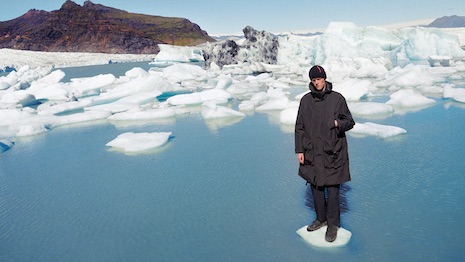 From Italian fashion brand Prada to British automaker Bentley, prestige companies are activating often in the Arctic. Image credit: Prada
From Italian fashion brand Prada to British automaker Bentley, prestige companies are activating often in the Arctic. Image credit: Prada
From Denmark to Norway, prestige is increasingly showing enthusiasm for the north.
Luxury companies across categories are pouring resources into Nordic nations, framing them as the setting of fashion campaigns, hosting Arctic automotive retreats and, among other activations, opening five-star hotels in the area. As the international community discovers a love for all things hygge and biophilic, Scandinavia and its trademark trends are proving to be in the midst of defining the landscape of tomorrow.
“The Nordics have it right when it comes to luxury,” said Neen James, luxury leadership expert and CEO of Neen James, Tampa.
“In our Luxury Mindset Research study, the characteristics of luxury are defined as long-lasting, high-quality, unique, authentic and indulgent,” Ms. James said. “This area of the world demonstrates all of these characteristics in how they live, decorate their homes and dress.”
Influence of affluence
Made up of the Åland Islands, Denmark, Finland, the Faroe Islands, Greenland, Iceland, Norway and Sweden, the Nordics are gaining new levels of visibility.
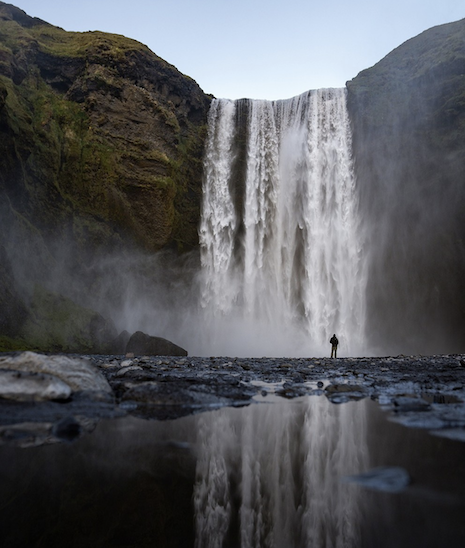 Nordic sites are increasingly appearing in luxury fashion campaigns. Image credit: Canada Goose
Nordic sites are increasingly appearing in luxury fashion campaigns. Image credit: Canada Goose
Historically considered too remote for even adventurous travelers’ vacations, the region is now home to some of the most sought-after sites in the world. With the luxury industry’s wide-ranging support, these countries have become frequent appearances on social media feeds, fashion campaigns, film sets and more.
In 2021, magazine publisher Condé Nast uplifted the region, adding Scandinavia as the 28th addition to its Vogue roster and affirming its authority as an industry influencer, especially in design (see story). Meanwhile, more than 30 years after Fashion Week landed in Paris, it came to Copenhagen in 2006.
Since then, the area has gained traction as a powerful place to set campaigns and commercial photo shoots. With distinctive volcanic soil, rugged coasts, glistening glaciers and diverse habitats, the northern reaches of the world seem to offer something for everyone, both in terms of travel spots and marketing needs.
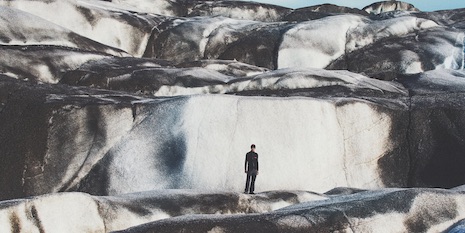 The dramatic landscapes of the Arctic are proving to be effective marketing tools for luxury. Image credit: Prada
The dramatic landscapes of the Arctic are proving to be effective marketing tools for luxury. Image credit: Prada
Film crews have long understood the versatility of nations like Iceland. Thanks to the many landscapes it offers, from puffin-dotted seasides to emerald lava fields, moviemakers have been able to make the country the backdrop of stories that take place in several places.
For example, The Secret Life of Walter Mitty is set in Greenland, Yemen, Iceland, Afghanistan and the Himalayas, and yet all of it was shot in the Nordic spot. Massive blockbusters like Interstellar have even taken to the island to depict galaxies far beyond our solar system, all the while the nation advertising its unique benefits to artists in the field with promotions and a dedicated website.
It appears that prestige advertising has caught on to this perk that production teams have enjoyed for years, and as of late, luxury has been converging in Iceland in swaths, though some have been in the loop for longer (see story).
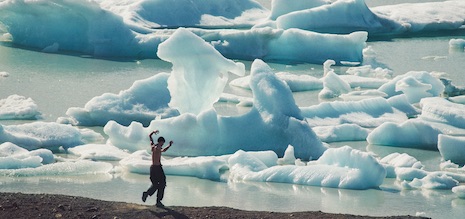 Prada hit the ice for its latest Linea Rossa advertisement. Image credit: Prada
Prada hit the ice for its latest Linea Rossa advertisement. Image credit: Prada
Italian fashion brand Prada is among them, showcasing its fall/winter 2023 Linea Rossa collection in imagery captured by American photographer Ryan McGinley.
Mr. McGinley is known for his exploration of the human-nature relationship, and he contextualizes the maison’s technical outerwear and sporting attire with this framing in mind. Models are shown posing artistically in front of and on ice floats in Jökulsárlón, a glacier lagoon situated by southeastern Iceland’s Vatnajökull National Park.
The spot is seemingly extremely popular for luxury-backed winter promotions, as outdoor clothing company Canada Goose has likewise included the locale in its Live in the Open campaign on social media.
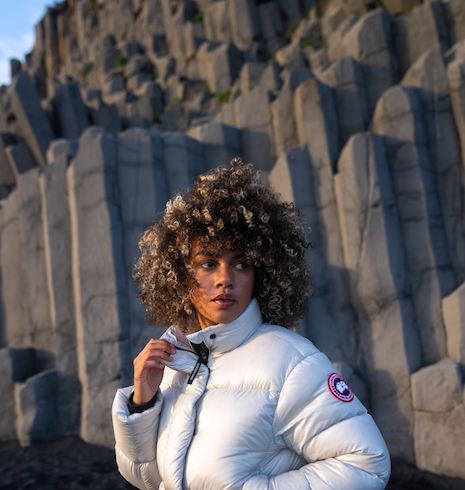 Those in the outdoor wear sector are finding the northernmost reaches of the planet to offer optimum spaces to shoot campaigns. Image credit: Canada Goose
Those in the outdoor wear sector are finding the northernmost reaches of the planet to offer optimum spaces to shoot campaigns. Image credit: Canada Goose
Starring three athletes, kayakers and soccer players alike joined up in Iceland to explore landmarks in the south of the country like Vík í Mýrdal, Skógafoss and the recognizable basalt columns of Reynisdrangar, as seen in HBO’s Game of Thrones series. British surfer Laura Crane stood among iceberg chunks on the lagoon.
Swiss watchmaker Vacheron Constantin likewise took to Jökulsárlón not even three months ago for a campaign. American artist Zaria Forman was its star, and like Mr. McGinley, is famous for her creative meditations on climate and humanity (see story).
The arguably aesthetic look of Nordic locations like Iceland is no longer a secret, and the wave of Scandinavian retail openings is a testament to this, inclusive of Spanish fashion label Loewe’s recent reveal of its first standalone store in Sweden and debut flagship in Norway.
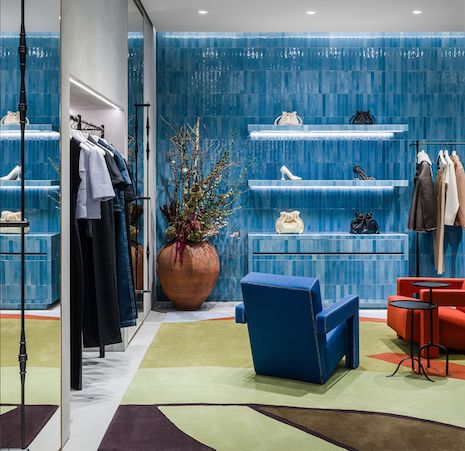 Loewe has officially landed in Norway with a flagship in Oslo that is now open to customers. Image credit: Loewe
Loewe has officially landed in Norway with a flagship in Oslo that is now open to customers. Image credit: Loewe
The luxury automotive sector especially is coming out as a prime category for northern activations, with many brands hosting retreats and driving experiences for clients in Arctic countries. Drawing in takers with the promise of stunning scenery, the move shows off the capabilities of their vehicles to perform in extreme conditions (see story).
Just this week Italian automaker Porsche announced it is bringing its electric vehicles (EVs) to the northernmost edge of Scandinavia. The Porsche Travel Experience Norway is a six-day experience for up to 10 people, taking fans of the brand on a journey through the country in Taycan models.
Priced at nearly $12,000 without the listed additional services, the tour goes from Oslo up to the remote fjords at the top of the world.
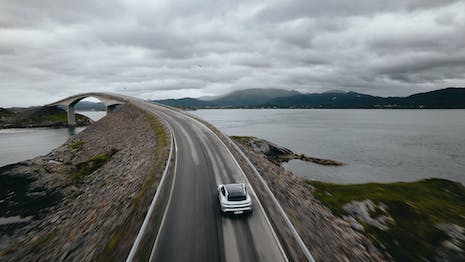 Porsche is taking fans on the road in Norway. Image credit: Porsche
Porsche is taking fans on the road in Norway. Image credit: Porsche
Along the way, clients will get to explore fishing villages, taste Michelin-starred culinary art and, among other things, drive the famed Atlantic Ocean Road from the comfort of their EV. In its advertisement video for the opportunity, Porsche has revealed that Viking sites will be on the agenda too, the culture proving inspirational for luxury fashion this autumn (see story).
British automaker Bentley has similarly taken to Scandinavia, treating participants in its Extraordinary Journeys tours to seasonal eating in Denmark and slow food (see story) in the forests of Sweden, the latter celebrated on the brand’s YouTube channel at the end of this week. With the help of renowned Swedish chef Niklas Ekstedt, guests learned about local produce and entertaining, Nordic style.
As the luxury industry has become increasingly experiential-focused (see story), Scandinavia’s reputation for being a good host holds relevancy and prestige car companies are especially keen on this benefit, making hospitality a key component of their activations.
Bentley brings consumers to Sweden’s Trakt Forest
“Just take Volvo as an example,” said Ms. James.
“One of my clients ordered her new Volvo and received the Volvo Discover Experience which included airfare to Gotenburg, converge travel services, hotel, VIP meet and greets, limo service, a Scandinavian buffet and an opportunity to tour the factory operations,” she said. “To top it off, when she was in the waiting room a man in a suit drove her car into the lobby so she could ‘meet’ her car.
“That is personalized, customized and exceptional luxury service.”
It is perhaps for this handle on hospitality that international interests are investing in the fine dining and growing wine industry in the area, including French luxury conglomerate LVMH (see story).
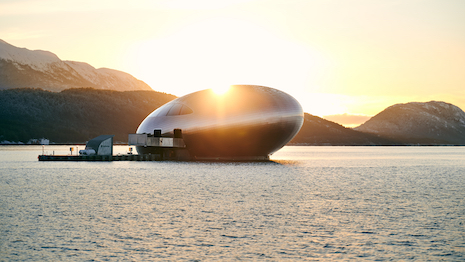 Norwegian spots like Salmon Eye charge hundreds of dollars per person, garnering the attention of the world of fine dinners and striking settings. Image credit: Iris the Restaurant
Norwegian spots like Salmon Eye charge hundreds of dollars per person, garnering the attention of the world of fine dinners and striking settings. Image credit: Iris the Restaurant
Added to the fact that these far-flung places up north are becoming top hitters on affluent travelers’ lists (see story), maisons from around the world are finding ways to engage with customers in Scandinavia (see story).
With Finland’s first five-star stay opening on Dec. 15 in Helsinki and hotel group Marriott International’s Bonvoy rewards program publishing a series of videos highlighting the culture of the Nordics, tourism is turning out to be a major way that luxury is benefitting from the region.
“Scandinavia is an area of the world focused on nature and care,” said Ms. James.
Marriott takes travelers to Finland
“One of the hottest trends in luxury travel is wellness travel, and Iceland ranks as one of the top emerging wellness destinations,” she said. “Virtuoso’s annual Luxe Report revealed that ‘travelers remain insatiably curious and willing to pay for new experiences,’
“When travelers seek inspiration, this is an innovative region to choose as a pioneer in fields ranging from architecture and design to fashion and fine dining.”
The hygge factor
Though hygge is a specifically Danish term, it has become synonymous with all of the Nordics.
While not all of these countries use the now very popular word, every nation has its own term for cozy contentment. As every one of the nations consistently ranks as the happiest in the world, it is no wonder that wellness and a connection to the seasons factor into their unique philosophies concerning satisfaction.
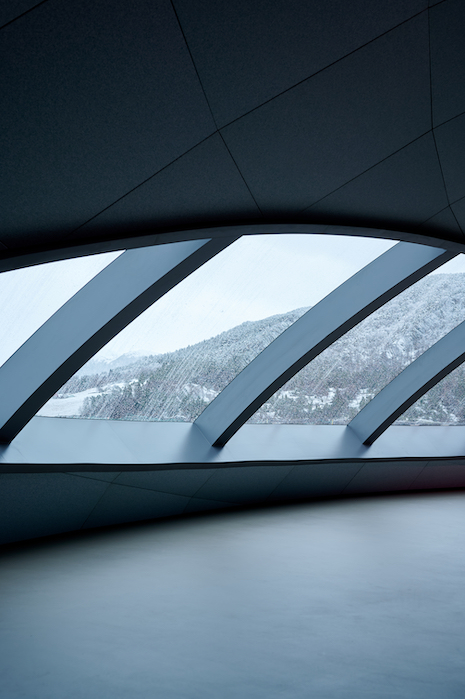 From saunas to nature-informed structures, wellness is woven into communities in Scandinavia. Image credit: Iris the Restaurant
From saunas to nature-informed structures, wellness is woven into communities in Scandinavia. Image credit: Iris the Restaurant
As consumers seek out deeper meaning with their purchases (see story), embracing hygge could help prestige brands unlock their full potential in the current market, fostering deeper loyalty and bringing onboard rising luxury customers.
“We can all agree luxury is about experiences, not things,” said Ms. James.
“If you look at the concept of hygge, it is about the luxury of time to relax and enjoy life’s quieter pleasures.”
This idea has captivated the world, with #hygge getting 9.2 million hits on Instagram alone. Though the meaning goes deeper, many are attaching the word specifically to home design.
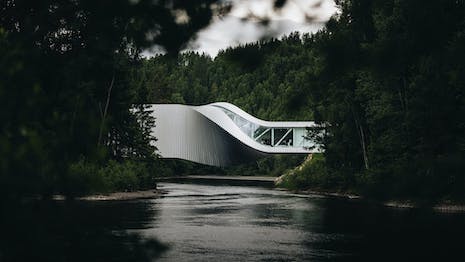 Architecture around the world is embracing the biophilic trend, a longtime standard of Nordic design. Image credit: Porsche
Architecture around the world is embracing the biophilic trend, a longtime standard of Nordic design. Image credit: Porsche
Architecture in general has become a major aspect of attracting shoppers in person, as COVID-19 lockdowns reinvigorated the brick-and-mortar retail blueprint. Biophilic design has emerged as a favorite of luxury consumers, and many high-end brands across categories are therefore finding ways to tap into its power (see story).
HBO’s Succession – which is also an influencer of luxury in its own right for its highlighting of “quiet luxury” (see story), an integral part of the viral “Scandi style” trend – helped bring attention to the fact that the north has championed this building style and retail layout for decades.
“The design philosophy here is clean and simple lines,” said Ms. James.
“Uncluttered and elegant are words often associated with this culture,” she said. “Nature is also an important part, combining rich colors and warmth.”
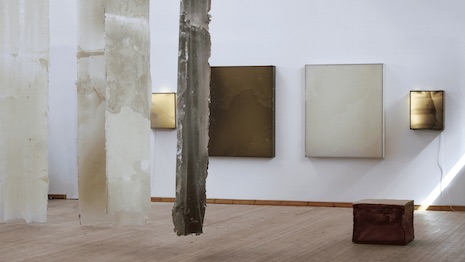 Bentley has announced that a Danish design studio is the first winner of an international award program. Image credit: Bentley
Bentley has announced that a Danish design studio is the first winner of an international award program. Image credit: Bentley
With North American customers ranking comfort highest on their lists of luxury attributes (see story), this storied approach fits right into modern mentalities and could be a major growth instigator for companies.
This week the first of the Bentley Lighthouse Awards was announced as going to a firm celebrating this style in Denmark, Natural Material Studio. The house was hailed by the British company for its “beneficial impact on social and environmental sustainability.”
The international community at large has shown enthusiasm for these concepts that are alive and well in the Nordics and have been for some time.
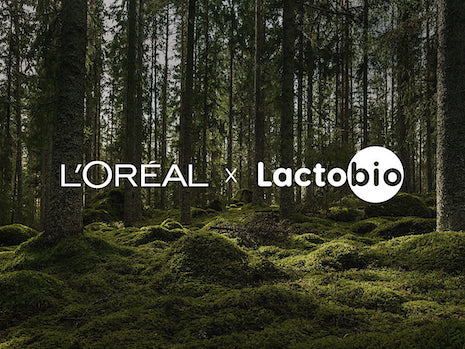 On Dec. 4th, beauty group L’Oréal announced it is acquiring Danish research firm Lactobio as the region's eco-wellness philosophies gain international attention. Image credit: Lactobio
On Dec. 4th, beauty group L’Oréal announced it is acquiring Danish research firm Lactobio as the region's eco-wellness philosophies gain international attention. Image credit: Lactobio
This concern for the planet has been worked into some of the most visible activations in the region. The world has watched as Copenhagen became the first Fashion Week to enforce sustainability criteria for all participating brands and Vogue Scandinavia put an environmental activist on its first cover (see story).
It now appears that the future’s biggest trends fall right into Nordic nations’ oldest and most recognizable patterns. Once places few could point to on a map, these countries exist alongside luxury’s most influential locations as fashion houses and global retailers decide to set up shop in the north, however cold it may be.